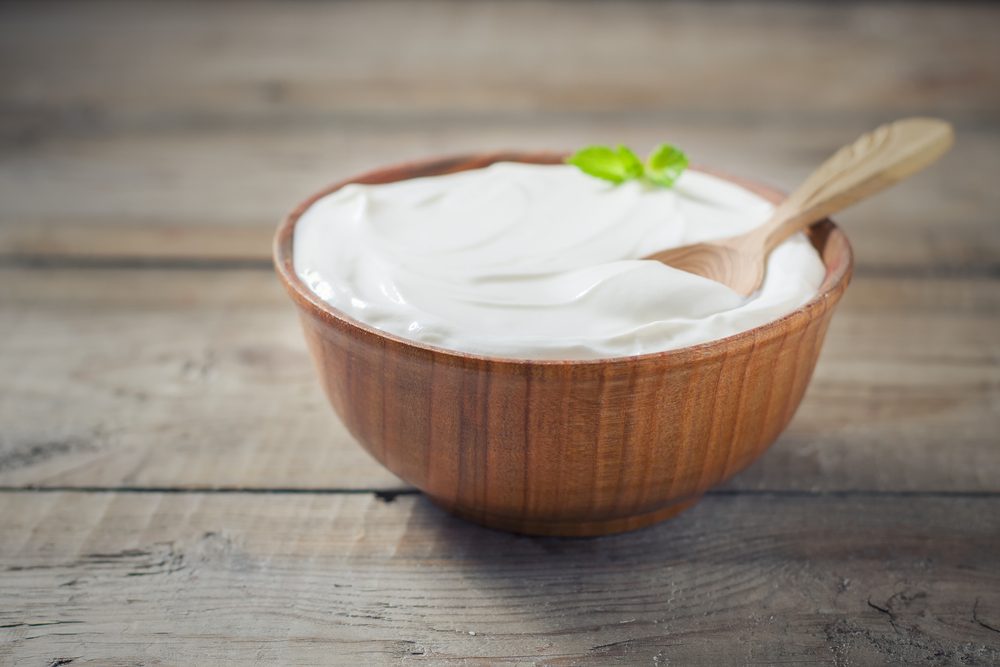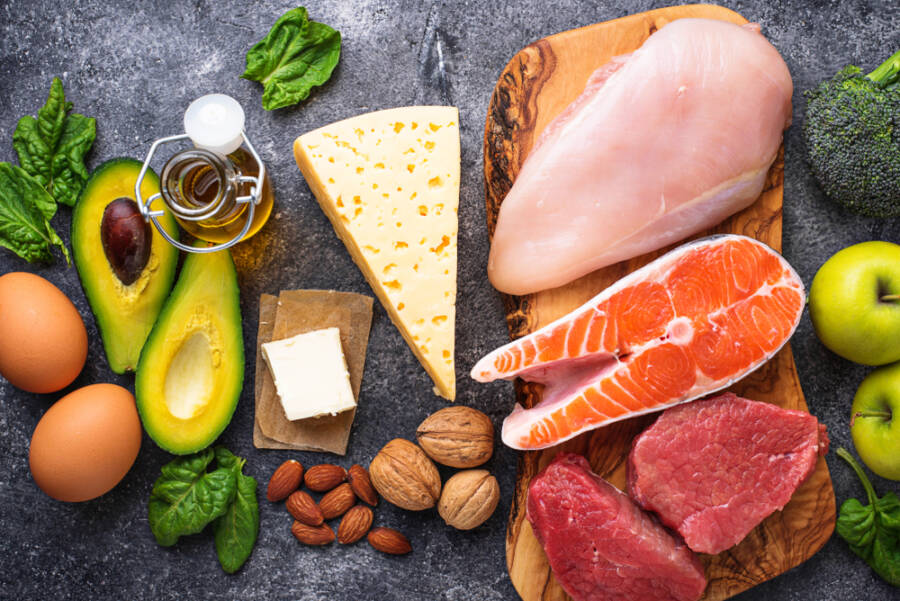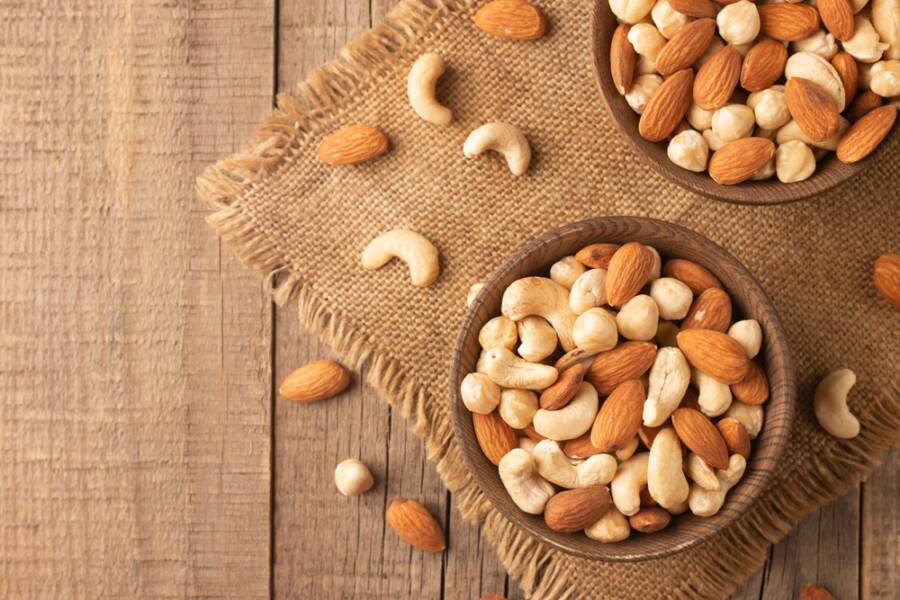Have you ever considered that high-fat foods could be beneficial for your health?
High-fat foods have always been something to avoid, especially if you lend an ear to many of the diet culture ideas in the last couple of decades.
After all, dietary fat was seen as something to avoid at all costs (along with carbs) and as something that can accelerate the likes of heart disease.
However, research has since found out that high-fat foods may actually end up being beneficial to our health!
The American Heart Association has been saying that we should limit the amount of saturated fats we consume (an amount that is lower than 10% of our daily calorie intake).
Generally speaking, you should strive to limit saturated fats, but not all of them are bad; for example, the ones found in dairy products are not as bad as those found in red meat products.
Either way, fat as a concept has become demonized, and a lot of people are striving to remove as much of it from their diet as possible. The reality is that those that are fat-free or reduced-fat may have less fat content, but they are often way more processed and heavy in carb and sugar content.
Today we have brought you some high-fat foods that are more beneficial to you than those low-fat ones and explained why you should make sure they are a part of your diet.
Which one of these high-fat foods surprised you? Which ones do you have in your diet? Let us know in the comments below!

Full-fat yogurt
Yes, full-fat yogurt! We have already mentioned that some low- or free-fat food options may end up being too sweet or having a lot of carbs. When it comes to getting most of the nutrients in yogurt, you have to go for the full-fat version.
What makes this one more desirable when compared with all the other high-fat dairy foods is that it has healthy probiotics due to the fermentation process to make yogurt. These have a beneficial impact on your health!
Research proved that yogurt helps with improving people’s digestion, along with being an important part of some people’s weight management, and, to make matters even better, it also aids in reducing the risk of developing heart diseases.
What’s more, studies have shown that full-fat yogurt has no negative impact on your health when compared with reduced- or free-fat dairy options!
Pro tip: to get most of this item, look for minimally added sugar whole milk, or full-fat yogurts.
Whole eggs
For years, we have seen people say you should be eating more of the white part of the egg since it has more protein. The yolk is “unhealthy,” they said since that yellow goodness is where the cholesterol is, along with the egg’s fat content.
Yet, studies have shown over the years that the cholesterol found in eggs is not detrimental to blood cholesterol, at least in most people.
Eggs are actually a high-fat food that is full of minerals and vitamins, including the likes of choline, which is essential in maintaining nerve and brain health. One medium egg (around 50 grams) has about 27% of the daily intake of cholesterol a healthy adult should have.
Yet, that is only possible if you also eat the yolk. So do not skip on a whole egg scramble in the morning!
To make things better, not only are whole eggs a healthy addition to anyone’s diet despite their high-fat content, but they can also aid with weight loss.
Eggs are high in protein, and they can help you be satiated for longer between meals, thus leading to a decrease in excess calories consumed.

Fatty fish
Not everyone likes the sound of fatty fish, but in reality, you probably eat it more often than you think. Fatty fish is known to be one of the most nutritious sources of animal protein out there, and one of them is one of the most commonly eaten fish: salmon.
Other types of fatty fish that are indeed high-fat foods but are good for you when eaten in moderation (like everything on our list) include the likes of trout, mackerel, and herrings. anchovies and sardines!
The reason why all of these fish are healthy is because of the high amount of quality protein, numerous minerals and vitamins, and, of course, the heart-healthy omega-3!
Research has discovered that if you add fatty fish to your regular diet, you may aid in regulating blood sugar levels, lower the risk of developing heart disease, and enhance your cognitive functions!
Yet, if you cannot or do not want to eat fish, you can take a supplement with fish oil.
The best ones on the market are the cod fish liver oils, which contain the highest amount of omega-3 and come with a copious amount of vitamin D as well. These capsules from Amazon are our favorite!
Cheese
Indeed, this is the second type of high-fat food that is dairy-based, but it is good to stop and mention it since cheese generally gets a bad reputation. Truth be told, cheese is nutritious.
It is a great source of protein and has a number of important minerals and vitamins we all need; calcium, phosphorus, vitamin B12, and selenium are just some of the most important aspects of cheese, besides some of the other nutrients we all should strive to add to our diet.
What’s more, if you have been thinking of adding more protein to your diet, then know that one ounce of cheese contains about 6 grams of protein. It is as much as a glass of milk, but it can be used in different ways. This is, of course, if you are not lactose intolerant.
Despite this, cheese is still on the list of high-fat foods, and while it is regarded poorly, it is time to stop. As long as it is consumed moderately as part of a balanced diet, full-fat cheese does not increase the risk of developing heart disease.
It stands on the same footing as reduced-fat dairy products. So if this was what prohibited you from enjoying your favorite type of full-fat cheese, know you can do so without worry!

Nuts
Nuts are definitely some of the healthiest types of snacks out there, and for good reason. They are indeed a high-fat food, but these fats are all good quality, healthy ones, and they are also an amazing source of plant-based protein and fiber.
Nuts are also one of the few foods that are loaded with magnesium, a mineral that is pretty hard to get from other foods and that most adults do not consume in appropriate amounts. Along with vitamin E, nuts are starting to sound more and more like a great choice for a healthy and filling snack!
Research has shown that people who eat nuts and add them to their diet as a regular occurrence end up having a lower risk of developing heart disease and a lower rate of obesity.
Some of the best nuts to consider adding to your diet include walnuts, almonds, and academic nuts, just to name a few!
Avocados are one of the easiest ways to get some healthy fats into your diet, and adding them to your meals is pretty simple. If your thoughts went to the millennial hit, avocado toast, then you’re onto something! However, is avocado toast all it is rumored to be? Check out our article here to get the scoop on avocado toast and how you can make it so it’s truly healthy!







One reply on “5 High-Fat Foods That Might Lower Your Risk of Chronic Diseases”
This information is so important to me. I have IBS and cannot each most foods, but what you have recommended in your articles are so true. All of these foods are in my diet. Unfortunately, I have to be very careful of what I can have. Thank you for all your help!